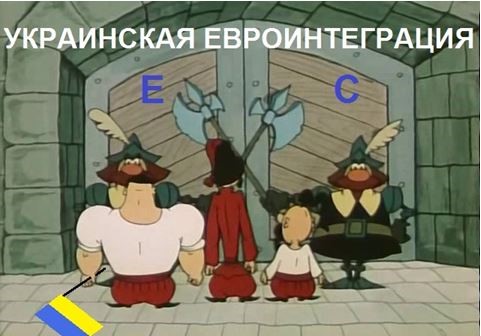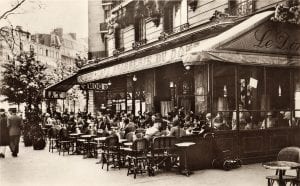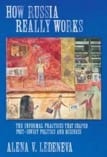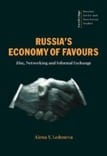Europe, keep an eye on Minsk
By Lisa J Walters, on 29 March 2017
If the Belarus president is to survive, he will have to walk a narrow path between pressure from demonstrators and the Kremlin.
Prof Andrew Wilson, Professor of Ukrainian Studies
This opinion piece was originally posted on Politico on 17th March 2017
When Belarus President Alexander Lukashenko imposed a “social parasite” tax in 2015, he assumed — in normal populist dictatorial fashion — that a $245 fine on those who worked for less than six months a year would be a popular move.
What he didn’t expect was that ordinary citizens would, instead, show solidarity with the roughly half a million people affected and take to the streets in rare public protests.
How to manage geopolitical risk and understand its implications on your portfolio and regional stability: Russia and the Ukrainian Crisis
By Lisa J Walters, on 23 March 2017
By Dr Eugene Nivorozhkin, Senior Lecturer in the Economics of Central – Eastern Europe
Centre for Comparative Studies of Emerging Economies
The economic and political turbulence around Russia in the aftermath of the Crimea annexation in March 2014 is an interesting illustration of how a geopolitical event is itself necessary but not sufficient to cause significant geopolitical risk for investment portfolios.
The Ukrainian crisis prompted a number of countries and international organisations to apply sanctions against individuals, businesses and officials from Russia. In addition to diplomatic actions, the measures included travel bans and freezing assets owned by Russian officials and friends of Putin. A broad set of measures targeted sectoral cooperation with Russia and more general economic matters. In particular, Russian state banks were excluded from raising long-term loans in international financial markets. Bans were implemented on arms deals and exports of dual-use equipment for military use. The EU/US ban included exports of selected oil industry technology and services, to name just a few.
Ukraine: Waiting for Donald, worrying about the EU
By Lisa J Walters, on 16 March 2017
Prof Andrew Wilson, Professor of Ukrainian Studies
This commentary was originally posted on ECFR.eu on 18th January 2017
Ukraine’s prospects are under threat from developments on both sides of the Atlantic.
Something is stirring in Ukraine. The most obvious cause is Donald Trump’s imminent inauguration on 20 January, and the widespread fear in Kyiv that his push for some kind of Yalta 2.0 agreement with Russia will be at Ukraine’s expense.
But another parallel cause is the fear that the European Union is losing interest in Ukraine. After Dutch voters rejected the EU-Ukraine Association Agreement at a referendum in April 2016 (though many were really voting about the Netherlands and Europe), the price of bringing the Dutch government into line was high. In fact, it took a triple reassurance just to get PM Mark Rutte to take the issue back to parliament for a vote to overturn the referendum result.
Those reassurances came in the European Council’s resolution of 15 December, which declares that ‘the Agreement does not confer on Ukraine the status of a candidate country for accession to the Union, nor does it constitute a commitment to confer such status to Ukraine in the future’. Furthermore, it ‘does not contain an obligation for the Union or its Member States to provide collective security guarantees or other military aid or assistance to Ukraine’. And finally, it ‘does not grant to Ukrainian nationals… the right to reside and work freely within the territory of the Member States’. While this resolution does not roll back existing, modest, European commitments to Ukraine, it was interpreted as a major setback in Kyiv.

‘Ukrainian Eurointegration’: The Ukrainians are barred entry to the locked doors of the ‘EC’(EU).#
Report on Panel Discussion ‘Decommunization and the Reshaping of National Memory in Ukraine’
By tjmsubl, on 8 November 2016
On 1 November 2016 UCL SSEES hosted a panel discussion on recent memory politics in Ukraine, organised in collaboration with the Ukrainian Institute in London. The speakers on the panel were Anne Applebaum, Pulitzer Prize-winning author and journalist, Andrii Portnov, a historian based at the Forum Transregionale Studien and Humboldt University in Berlin and a well-known commentator on Ukrainian memory politics, and Alina Shpak, Deputy Director of the Ukrainian Institute of National Remembrance (UINR).
Uilleam Blacker of SSEES, who chaired and co-organized the event, reports on it here for SSEES blog. Video excerpts can be seen here:
The focus of the discussion was a set of laws redefining state memory politics that were introduced in 2015. The four laws, known in the shorthand as the ‘decommunization’ laws, entail the following:
Russian Montparnasse: Transnational Writing in Interwar Paris
By yjmsgi3, on 16 August 2016
 Dr Maria Rubins, Senior Lecturer in Russian Literature
Dr Maria Rubins, Senior Lecturer in Russian Literature
Russian Montparnasse
Transnational Writing in Interwar Paris
Palgrave Macmillan, 2015
[Revised and expanded Russian translation is in print at the NLO Publishing House in Moscow.]
Today, the famous Montparnasse cafés have become quite upscale establishments, and it is hard to imagine that in their heyday a homeless apatride could nurse a single drink on a café terrace for the entire night. During les années folles, as the interwar period was dubbed in France, “Le Dôme,” “La Rotonde,” “La Coupôle” and other brasseries near the intersection of Boulevard Montparnasse and rue Vavin were the epicenter of transnational modernist culture. Legendary artists and writers of the time – Modigliani, Soutine, Aragon, Chagall, Man Ray, Hemingway, Picasso – all passed through Montparnasse. The star of Parisian music halls, the American dancer Josephine Baker, would sometimes arrive in a café in the company of her pet leopard. And many a painter’s muse, the model Kiki, would take a dip in a water basin at the centre of “Le Dôme” to cool down after a champagne-drinking marathon.
Barely conspicuous in the bohemian crowd, young Russian émigré writers also thrived in this cosmopolitan and provocative environment. Alienated from their homeland, marginalized in their adopted country, and feeling constrained by conservative aesthetics prescribed by the émigré literary establishment, these young men looked toward European avant-garde for inspiration. Montparnasse offered a unique site where they could interact with Western peers and observe contemporary life, where hierarchies were suspended and where all cultural, ethnic and linguistic hybrids with unstable identities and precarious legal status could get a sense of belonging and relative freedom.

OPL1153075 Brasserie Cafe du Dome, Paris, 1920 (b/w photo) by French Photographer, (20th century); Private Collection/Bridgeman Images
The Montparnasse genius loci left an indelible mark on the style, thematic repertoire and personal lives of the young Russian writers. Many pages in the works of Gaïto Gazdanov, Vasily Yanovsky, Nikolai Otsup, Serge Sharshun, Boris Poplavsky (nick-named the “Prince of the Kingdom of Montparnasse”), and others contain colorful descriptions of a café scene, where, in Elsa Triolet’s words, “amidst the cigarette smoke permanently hung a scandal”.
In this book I treat Montparnasse not just as a place of gathering or a background depicted in interwar art and fiction but as a creative locus that generated its own aesthetics and discourse. Born out of exile and existential anxiety, Montparnasse literature responded to unprecedented cataclysms that shook the world, and also reflected technological and cultural shifts of the interwar period. Arguably, the real shock of modernity occurred in the 1920-1930s. This was, by David Trotter’s definition, the first “media age,” when radio and telephone entered the homes of millions. Air travel, symbolized by Charles Lindbergh’s historic solo flight from New York to Le Bourget, altered conventional perception of distances, geography, and the rhythm of human existence. World wars, mass migration, flows of refugees; widely popularized scientific discoveries, including radioactivity; the rise of mass culture and commodification of artwork; the dominance of cinema and progressive visualization of culture in general; the cult of celebrity; skepticism about positivist ideas; and discrediting any rational forms of self-knowledge under the impact of Freudian theories – these were the key processes that marked a drastic break with tradition and defined the world as we know it. In the interwar period, due to new communication technologies, artistic styles, fashion, music and ideologies began to circulate rapidly around the globe. As the “cultural capital of the world,” Paris was at the nexus of these trends.
My book was initially intended as a study of the prose fiction of the younger émigrés of the first wave, but then evolved into a reflection on the spirit and legacy of transnational modernism. Montparnasse became a metaphor for the interwar cultural production across Europe, which articulated the experience of modernity. It gradually became clear to me that Russian Montparnassians could not be understood only as an extension of the Russian national tradition, but had to be read against Hesse, T.S. Eliot, Aragon, Breton, Henry Miller, D.H. Lawrence, Bataille, Fitzgerald, Hemingway, and other writers who best expressed the sense of civilizational collapse and the advancement of a new era. Such works Georgy Ivanov’s nihilist “The Atom Explodes,” for example, condemned as provocation in Russian émigré circles, shares an aesthetic and conceptual lexicon with modernist texts like T.S. Eliot’s The Wasteland, Miller’s Tropic of Cancer, and Breton’s Nadia. Ivanov, Yanovsky, Felzen, Bakunina, Adamovich, Poplavsky and other Montparnassians were among the first to realize that the Russian classical tradition was inadequate in the post-apocalyptic reality, and to set out to create a new language.

Cosmopolitan bohemia at Cafe La Rotonde, Montparnasse, 1924 by French School, (20th century); Bibliothèque Historique de la Ville de Paris, Paris, France. Archives Charmet/Bridgeman Images.
While Russian Montparnasse literature was no less vibrant or experimental than coeval writing in other tongues, it long remained practically unknown beyond a narrow circle of Russian readers. To a much greater extent than other expatriates in interwar Paris, Russians lacked cultural networks, a vast audience in their homeland, translations and opportunities for marketing. But low visibility was also a self-fulfilling prophecy: the young writers called themselves the “unnoticed generation,” driven by the Surrealist discourse of anonymity and the myth of the “lost generation.”
Russian Montparnasse is a book about a transnational literary community that simultaneously drew upon, blurred and transcended Russian and foreign traditions and amalgamated different cultural lexicons and national narratives, anticipating more recent trends of cultural globalization. Their corpus of texts raises questions about the role in artistic expression of migration, borders, and dual identities. Today, the migrant has come to occupy a central place in arts and political discourse, prompting critics to rethink the relevance of conventional “national” affiliations for many authors and texts that thrive in the no man’s land beyond nation-states, languages and cultures – Rushdie, Nabokov, Kundera are just a few of the names that spring to mind in this regard.
I came to think of Russian Montparnasse as an early unconscious attempt to open Russian culture to a transnational dialogue, to transcend the national agenda and to reconfigure canonical values. Exile, which these writers saw as their curse, in fact allowed them to discover new directions in verbal art.
Further information from the Palgrave Macmillan site:

Maria Rubins
RUSSIAN MONTPARNASSE: Transnational Writing in Interwar Paris
Published by by Palgrave Macmillan in the Series “Palgrave Studies in Modern European Literature”
ISBN 9781137508027
This book is a case study in transnational modernist literature generated by exile, dislocation and cross-cultural exchanges, focusing on the younger writers of the interwar Russian Parisian diaspora, known as Russian Montparnasse. Maria Rubins argues that their hybrid, bicultural and bilingual writing transcended the Russian national master narrative, anticipating more recent diasporic tendencies. The book sets the Russian Montparnasse corpus into trans-cultural and intertextual dialogues with key Western and Russian texts to demonstrate that their artistic response to the main challenges of urban modernity and cultural rupture resonated with broader aesthetic trends in interwar Europe. By systematically reassessing the role of Russian Montparnasse in the articulation of modernism, this study expands our knowledge of the evolution of the transnational literary canon, contributes to the academic debate about national vs. transnational analytical approaches to bicultural artistic production, and challenges the conventional status of language as the chief marker of literary affiliation.
Please note: Views expressed are those of the Author(s) and do not necessarily reflect those of UCL, SSEES or SSEES Research Blog.
Czech Republic – President Zeman and the ‘Czexit’ referendum question
By yjmsgi3, on 1 August 2016
By Dr Philipp Koker, Honorary Research Fellow at UCL SSEES
This blog originally appeared at http://www.presidential-power.com and is reproduced with kind permission
The result of the ‘Brexit’ referendum in the United Kingdom on 23 June has created waves across and beyond the British Isles and the European continent. As many still tried to come to terms with the UK’s (almost) inevitable withdrawal from the European Union, several representatives of populist and fringe parties across Europe already called for similar ‘exit’ referenda for their own countries. The Czech Republic is particularly interesting in this regard as it was Prime Minister Bohuslav Sobotka who was first credited with floating the possibility of a ‘Czexit’ in February this year but then publicly distanced himself from the possibility. Now, president Miloš Zeman has reignited the debate by calling for a public vote on EU (and NATO) membership of the country.
President Miloš Zeman (left) meets Martin Schulz, president of the European Parliament | © 2013 by hrad.cz
The UK referendum on EU membership has given rise to many calls for a similar votes in other countries. Far-right and populist leaders and presidential hopefuls, such as Marine Le Pen, have already called for a ‘Frexit‘ referendum in France and other variations of ‘-xit’ referenda in their countries. Although the anti-EU sentiment is most strongly represented in parties of the (far) right, demand for referenda has also come from the left and ideologically less defined populist actors, most prominently from Czech president Milos Zeman.
Shortly after the results of the UK vote broke, Zeman declared that – although in favour of EU membership – he would do everything for citizens feeling otherwise ‘to express themselves’, also with regard to NATO membership (a demand already made in February 2016 but quickly forgotten). Support for EU membership and trust in the EU institutions in the Czech Republic tends to be below average in comparison to other member states, yet is far from ranking lowest in the table. In the last year, criticism of and dissatisfaction with the EU has primarily been associated with the refugee crisis and the EU’s decision to impose quotas on its member states. The populist movement ‘Dawn’ recently submitted a motion to debate the possibility of a Czexitreferendum in parliament and the election of an MEP of the eurosceptic fringe Party of Free Citizens (SSO) in 2014 indicates that there is a part of the electorate that responds to anti-EU rhetoric.
Nevertheless, the Czech president does not possess any power to call referenda at will (a power reserved for only few presidents around the world) – the Czech constitution also only mentions referenda in a clause inserted to allow for the EU accession referendum in 2003 (in which case a special organic law was passed to allow for the referendum – the only one held in the Czech Republic to date). Furthermore, the government has made it clear that it opposes any public vote on EU membership. A Czexit or even a referendum on the Czech Republic leaving the European Union thus seems unlikely. Nevertheless, EU membership (and to a lesser degree NATO) membership presents a political cleavage which could be successfully mobilised in the upcoming parliamentary and presidential elections (2017 and 2018, respectively), particularly in conjunction with the refugee crisis. After Zeman’s approval had dropped sharply a year ago due to his position in the Ukraine crisis and a series of gaffes, his ratings have since improved and stabilised once again around 57-58% over the last months. By calling for a EU referendum yet supporting membership at the same time, Zeman could thus try to dance at two weddings at once – attract Eurosceptic voters (who will probably vote for a fringe candidate in the first round but could prove decisive in a potential runoff) while not losing too many mainstream voters.
The do-over the Austrian presidential election might provide a first test of how such a tactic might work out. Far-right presidential candidate Norbert Hofer initially suggested that the Austrian people should be given a say over further EU integration and in his campaign greatly benefited from anti-EU sentiment related to the refugee crisis. Following statements by his decidely pro-EU challenger, Alexander Van der Bellen (independent/Greens), last week he was however forced to acknowledge that it would disastrous for Austria if the country left the EU. In order to maintain the momentum of his campaign and keep the anti-establishment vote, Hofer must nevertheless try to balance pro- and anti-EU voters which could – if successful – provide a template for Zeman and the Czexit referendum question.
Please note: Views expressed are those of the author(s), and do not represent those of UCL, SSEES or UCL SSEES Research Blog
Russia’s Civil Society: From Democracy Backpedaling to Informal War
By yjmsgi3, on 30 July 2016
by Professor Alena Ledeneva
Across Central, Eastern Europe and Central Asia, democracy and civil society in the post-communist era are being diverted by informal ties, networks, practices that hide behind democratic institutions. The main problem with powerful informal obligations to family, friends, colleagues and bosses is that they also compromise the state, governance and civil society, especially where clear boundaries between public and private cannot be drawn. Imagine official positions that take over private lives, or having to choose between being a good bureaucrat and a good brother.
I’ve presented my research into informal practices in my trilogy on Russia: Russia’s Economy of Favours, How Russia Really Works, and Can Russia Modernise. In these three books, I take an ethnographic approach towards studying informal practices at different levels and periods, from the Soviet Union to Putin’s Russia. I view communism, its collapse, and the formation of a new system from the perspective of informal practices, and question the predominant discourses of the state, democracy, and civil society, associated with formal institutions.
There are three strands to my argument.
Firstly, the 1990s’ liberal reforms in Russia were originally thought to allow civil society to emerge and get grounded in already existent networks, yet this was not what happened. It turned out that Russia’s informal networks operate according to the ‘us versus them’ logic that is largely self- or network serving, and thus not conducive to civic values.
Secondly, the double standards widespread under the communist oppressive system continue to operate even after the fall of such a regime. The post-communist vacuum was hard to fill, and after a short blip of enthusiasm for democracy in late 1980s and early 1990s, the informal practices in politics – black PR, kompromat, krugovaya poruka (joint responsibility) – have increased people’s cynicism towards the new democratic institutions.
Thirdly, the non-civic nature of informal networks in Russia has also had effects on those in power. On one hand, Putin’s power networks served themselves and reproduced the culture of privileges, which is detrimental to civil society. On the other hand, Putin’s restrictive laws of 2006 and 2011, which, although damaging to existing non-governmental organisations, had the unintended consequence of benefitting civic initiatives emerging ‘bottom-up’. This was illustrated by the Blue Buckets campaign for equality on the roads, and the anti-Putin protests of 2011. The internet has become an important tool for activism, such as the Last Address initiative, whereby people commemorate victims of Stalin’s purges by putting a plaque on their building.
However, since 2012 powerful nationalist propaganda has considerably eroded the atmosphere for bottom-up social initiatives. This was launched by the Kremlin to ensure popular support for the continuing confrontation with the West over the situations in Georgia, Crimea, Eastern Ukraine, Syria and now Turkey. The informal war – an undeclared warfare behind the misleading facades – has gone international. This is not surprising, given the decades-long tradition of informal economy and informal politics. The future is even more worrying, as the number of leaders who admire and emulate the Most Powerful Person in the World is only likely to increase.
Note: This article gives the views of the author(s), and not the position of the SSEES Research blog, nor of the School of Slavonic and East European Studies, nor of UCL
Poland – Judicial independence in jeopardy? President Duda refuses appointment of ten further judges
By yjmsgi3, on 25 July 2016
By Dr Philipp Koker, Honorary Research Fellow at UCL SSEES
This post originally appeared at http://presidential-power.com/ and is reproduced with kind permission.
The controversy over Poland’s constitutional court triggered by president Duda’s refusal to appoint judges nominated by the outgoing Sejm and passage of legislation to legitimise his and the new government’s behaviour has so far dominated the presidency of Andrzej Duda (for a summary see Aleks Szczerbiak’s post here). Now, Duda is once again in the line of fire following his refusal to appoint ten out of thirteen judges from lower-level courts to higher positions. Thus, although the individuals put forward by the National Judiciary Council (a committee formed of 17 judges, the minister of judges and 5 political nominees) are far from uncontroversial, the relatively unchecked power of the president in the area of judicial appointments and the government’s plan to reform the judiciary continue to be the most prominent battlefields of Polish politics today.

President Duda appoints ‘his’ nominee Julia Przyłębska as judge of the Constitutional Tribunal on 9 December 2015| © prezydent.pl 2015
The Polish constitution, like so many others (irrespective of this being intentional or not), remains vague on a number of presidential duties and prerogatives. Article 179 of the 1997 Constitution thus states with regard to appointments of judges that “judges are appointed by the president on the suggestion of the National Judiciary Council” but gives no further instructions on the procedures or an eventual right of the president to refuse such nominations. Constitutional scholars widely agree that presidents may refuse the nomination of any candidate for public office (irrespective of judge, professor or prime minister) on the grounds of a person’s lack of formal and legally required qualification or reasonable doubts about their loyalty to the constitution. While this generally follows from presidents’ inaugural oath to uphold and protect the constitution, the rejection of nominees for political or personal reasons arguably has no legal basis.
Duda’s refusal to appoint the judges met with particular opposition due to the lack of justification for his decision. Before being proposed candidates for judicial promotions are vetted by the National Judicial Council; if their application is denied they can appeal the decision in court. An additional vetting by the president beyond formalities thus appears not only unreasonable but also adds the complication that there is no prescribed legal way to appeal his refusal to appoint a nominee. Many conflicts over constitutional clauses along the lines of “the president appoints/signs/etc” fall into the category of conflict between two constitutional organs and can be adjudicated by the constitutional court by the ways of a standard procedure. Yet as both the National Judicial Council and the rejected nominees lack ‘organ quality’, neither of them can easily challenge the president’s decision. The latter became clear in the only other case judicial promotions at lower courts were refused by the president. In 2007 Duda’s pre-predecessor Lech Kaczynski (the deceased twin-brother of current Law and Justice party leader Jaroslaw Kaczynski), created a precedent for Duda’s actions by declining to appoint nine judges. The nominees’ constitutional complaints were eventually rejected after four years of deliberations as the justification was that the implementation of administrative law by the president does not fall within the remit of the Constitutional Court. The Supreme Administrative Court likewise rejected the complaints and subsequent further constitutional complaints were also rejected so that the case now (still) lies with the European Court of Human Rights (for a longer summary, see the report of the Helsinki foundation here).
Newspapers have speculated on the reasons which led the president to reject the nominations. In fact, some of the nominees are far from uncontroversial. One judge was prominently accused of bribery, another judge controversially dismissed a collective law suit against the financial services provider Amber Gold (which was liquidated following the discovery that is was based on a pyramid scheme), and a third was involved in the widely discussed case of restricting the “parents’ rights” of a couple accused of violence against their children. In addition, one judge was widely criticised for continuously extending the arrest of a football fan for alleged drug-dealing, yet without any verdict being issued over the course of three and a half years. Last, one of the judges whose promotion was denied judged on a case in which Law and Justice party Jaroslaw Kaczynski leader sued fellow legislator Janusz Palikot (then Civic Platform, later founder of ‘Palikot’s Movement’) for insulting him.
None of the above-mentioned controversies would generally justify denial of appointment or other presidential intervention. Thus, it is more likely that they are part of the Law and Justice government’s plan to reform and mould the judiciary in their image. Given that Duda is generally seen as little more than a vicarious agent of Law and Justice leader and Polish politics’ grey eminence (he does not hold any government office) Jaroslaw Kaczynski, it is not unreasonable to assume that the president is now helping to fulfil that plan (while at the same time extending the powers of his office). In a recent proposal made by the government (which was already widely criticised by the Human Rights Ombudsman and NGOs), the National Judiciary Council would have to propose two candidates per vacancy thus considerably increasing the president’s power over judicial nominations. This, together with the conflict over the constitutional court and the government’s decision to once again merge the position of general prosecutor with the minister of justice (the positions were separated by the predecessor government in 2008 and unsuccessfully vetoed by president Lech Kaczynski) highlights the great importance that Law and Justice attaches to judicial reform. Nevertheless, it also shows that judicial independence in Poland might increasingly come under threat – not only, but partially due to president Duda’s activism.
Please note: Views expressed are those of the author(s) and do not necessarily reflect those of UCL, SSEES or UCL SSEES Research Blog
 Close
Close






